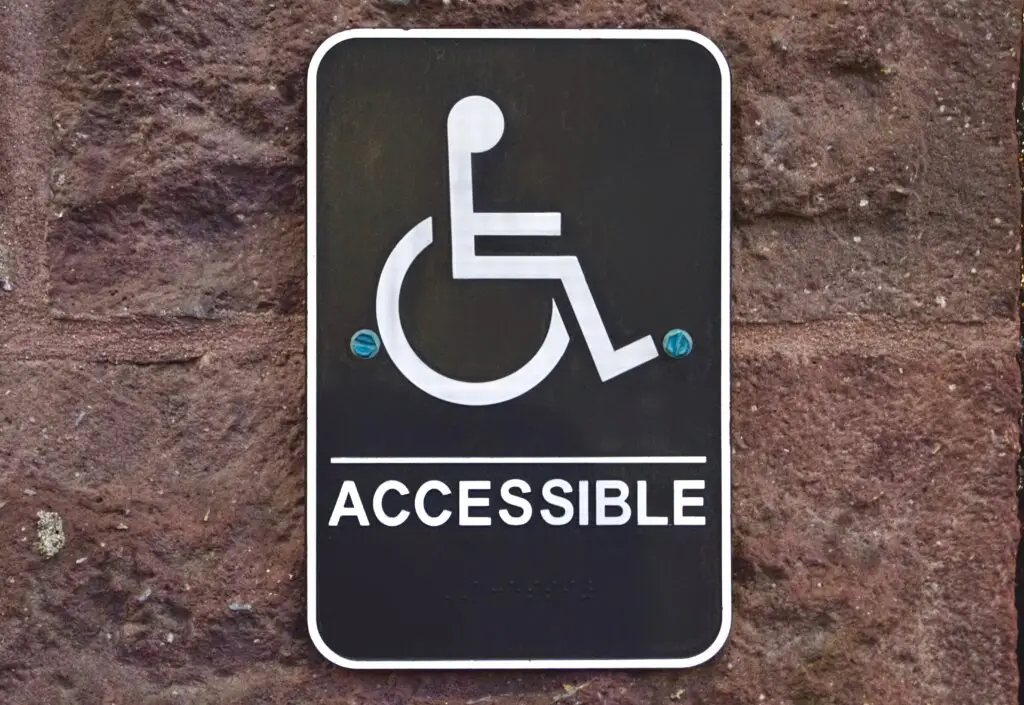Championing Inclusivity And Accessibility For Everyone

In an increasingly digital world, accessibility has become more important than ever. From social media to websites, mobile applications, and workplace environments, inclusivity should be at the forefront of how we approach content, design, and interaction. Global Accessibility Awareness Day (GAAD) serves as a critical reminder of the importance of creating accessible digital spaces for all people, regardless of their abilities. Held annually on the third Thursday of May, GAAD provides an opportunity for individuals and organisations worldwide to reflect on how they can make their digital products, services, and environments more accessible. In 2025, GAAD will take place on May 15, and the day is dedicated to raising awareness about digital accessibility and inclusion for people with disabilities.
But what does accessibility truly mean? And why is it crucial to incorporate accessibility into digital marketing and the workplace? This blog will explore these questions, delve into the significance of accessibility awareness, and highlight how we at Qualia Academy are contributing to creating more inclusive environments through our training programs.
What is Accessibility?
Accessibility refers to the design and creation of products, services, and environments that can be used by as many people as possible, including individuals with various disabilities. These disabilities can be visual, auditory, motor, or cognitive, and each may require different considerations to ensure that individuals can access, interact with, and benefit from the same content and services.
In the digital world, accessibility focuses primarily on making online platforms, websites, and applications usable for all people. This includes features such as screen reader compatibility for individuals who are blind, captioning and transcription services for those with hearing impairments, and easily navigable layouts for those with motor impairments. Digital accessibility isn’t just about helping people with disabilities; it’s about creating a more inclusive society where everyone has equal access to information, products, and services.
For example, a website that is accessible might offer alternative text descriptions for images so that users with visual impairments can understand the content. It might provide keyboard shortcuts and compatibility with voice commands to assist users who cannot use a mouse. Furthermore, it might feature customisable text sizes, contrast settings, and easy-to-read fonts, ensuring that users with varying abilities can engage with the content in ways that suit their needs. Accessibility is about eliminating barriers, so everyone, no matter their ability, can access the same opportunities and experiences online.
Why is Accessibility Awareness Crucial in Marketing?
Accessibility awareness in marketing is more than just a matter of compliance—it is a business necessity. In today’s world, digital marketing plays a critical role in attracting customers, promoting brands, and driving sales. Yet, many digital marketing efforts still overlook the needs of people with disabilities. This oversight can exclude a substantial portion of the population from engaging with a brand or purchasing a product, which ultimately limits a business’s reach and potential for growth.
Approximately 15% of the global population—nearly one billion people—live with some form of disability. This group represents a significant consumer base that businesses cannot afford to ignore. By implementing accessibility best practices, companies can tap into this demographic and expand their customer base. When marketing campaigns and digital platforms are designed with accessibility in mind, businesses ensure they are not inadvertently excluding these potential customers.
Moreover, accessible marketing builds trust and fosters a positive brand image. Consumers today are more likely to align with brands that demonstrate social responsibility, inclusivity, and a commitment to accessibility. Brands that prioritise accessibility awareness show that they value all of their customers and are willing to take the extra step to ensure that everyone can engage with their products or services.
Accessible marketing doesn’t just benefit people with disabilities—it benefits everyone. Many of the features that make digital content accessible, such as cleaner navigation, better organisation, and faster load times, can improve the experience for all users. For instance, creating a website that is mobile-friendly and easy to navigate benefits people with motor impairments, but it also makes the experience more seamless for everyone else. In short, accessibility enhances usability for all, ensuring that a broader audience can connect with the brand.
Accessibility in the Workplace: More Than Just Compliance
While accessibility in digital marketing is important, the workplace is another critical area where inclusivity needs to be prioritised. Accessibility awareness in the workplace means ensuring that all employees, regardless of their abilities, have equal opportunities to thrive. This is not just about providing physical accommodations for employees with disabilities, but also about creating an environment where neurodiverse individuals can feel supported and understood.
Creating an accessible workplace has many benefits for organisations. A diverse and inclusive workforce drives innovation, increases employee satisfaction, and improves retention. The more inclusive the workplace, the more diverse talent the organisation can attract, and the better equipped it is to thrive in today’s competitive business environment.
When companies invest in accessibility within the workplace, they help eliminate the barriers that prevent employees from achieving their full potential. This includes providing adaptive technologies for employees with physical disabilities, offering flexible work arrangements for those with chronic health conditions, and creating neurodiversity-friendly spaces for employees who may face cognitive or emotional challenges.
In a workplace that values accessibility, employees feel more included and are better equipped to contribute to the company’s success. Employees who feel understood and supported are less likely to leave, leading to higher retention rates. When employees know that their needs are taken seriously and that their voices are heard, they are more likely to remain loyal to the organisation and continue to contribute positively to its culture.
Additionally, fostering an accessible and inclusive workplace fosters better team dynamics. With diverse perspectives and experiences, teams are more likely to come up with creative solutions and innovative ideas that can drive the business forward. The more inclusive and accessible the environment, the more comfortable employees will feel to share their insights and ideas, improving overall productivity and the organisation’s success.
If you need any help with making the workplace more accessible have a look at the Access To Work Scheme.
Practical Strategies to Enhance Accessibility Awareness
To enhance accessibility awareness in both marketing and the workplace, organisations need to adopt a proactive approach. There are several practical strategies to ensure accessibility is embedded in daily operations and corporate culture.
In marketing, businesses can start by conducting an accessibility audit of their websites and digital content. This audit helps identify barriers such as inaccessible images, poor contrast, or video content without captions. Once these barriers are identified, businesses can implement changes that make their digital platforms more user-friendly for everyone.
Businesses can also invest in employee training to ensure that accessibility is a core part of the marketing and content creation process. By educating staff about accessibility best practices, companies empower their teams to design marketing campaigns and digital products that are inclusive from the outset. For instance, marketing teams can learn how to use alt text, how to create captions for videos, and how to ensure that website design is compatible with screen readers.
In the workplace, companies can implement a number of initiatives to enhance accessibility. Regular accessibility audits can help identify physical and digital barriers, such as inaccessible meeting rooms or software tools. Employee feedback is crucial in understanding the challenges that different individuals face in the workplace, and it provides valuable insights into how to improve accessibility. Offering training to managers and HR personnel on how to accommodate employees with various needs can also go a long way in fostering an inclusive work culture.
Additionally, ensuring that workplace policies are inclusive of people with disabilities and neurodivergent employees is critical. This includes offering flexible work hours, providing assistive technologies, and fostering an open dialogue about accessibility and inclusivity within the workplace.
How Qualia Academy Promotes Accessibility Awareness
At Qualia Academy, we recognise the importance of accessibility in both digital marketing and the workplace. That’s why we’ve integrated accessibility awareness into our training programs to help participants and organisations create more inclusive environments. Our approach not only helps businesses improve their digital presence but also ensures that they are fostering a workplace where every employee can thrive.
Our digital marketing training program covers the critical aspects of creating accessible digital marketing campaigns. Through comprehensive modules, participants learn how to design websites, create content, and run advertising campaigns that are accessible to people with disabilities. We teach the principles of accessible design, focusing on ensuring websites ate WCAG, providing alt text for images, and offering closed captioning for videos. Our aim is to ensure that all digital content reaches a wider, more inclusive audience, and that digital marketing professionals are equipped with the skills to make the web a more accessible space.
In addition to digital marketing training, we also offer neurodiversity training for employers. Neurodiversity refers to the concept that neurological differences, such as autism, ADHD, and dyslexia, should be recognised and respected as a natural variation of the human experience. Our neurodiversity training program helps employers understand how to create a more inclusive environment for neurodivergent employees. Participants in this training gain insights into how neurodiversity manifests in the workplace and how to adapt management and communication strategies to accommodate diverse cognitive needs.
Through this training, employers learn practical strategies for supporting neurodivergent employees, such as creating flexible workspaces, offering clear instructions, and fostering an open environment where neurodivergent employees feel comfortable discussing their needs. Participants also gain the knowledge needed to be effective advocates for neurodivergent colleagues, ensuring they are given the support and accommodations necessary for success.
By integrating accessibility awareness into both digital marketing and the workplace, we at Qualia Academy aim to make a meaningful impact on the broader conversation surrounding inclusivity. We believe that everyone, regardless of their abilities, should have equal opportunities to succeed in the workplace and online. Through our training programs, we empower individuals and organisations to create more inclusive and accessible environments.
Conclusion
Global Accessibility Awareness Day is a vital reminder of the importance of accessibility in every aspect of our lives—whether in marketing, the workplace, or beyond. Accessibility awareness is not just about compliance; it’s about creating a more inclusive and equal world where everyone can thrive. By embracing inclusive practices, businesses can unlock new opportunities, attract diverse talent, and build stronger relationships with their customers.
At Qualia Academy, we are committed to fostering accessibility awareness through our digital marketing and neurodiversity training programs. We believe that by equipping individuals and organisations with the knowledge and tools to be more inclusive, we can create a more accessible world for all. Whether you’re looking to enhance your digital marketing strategies or improve workplace inclusivity, the journey toward accessibility begins with education and awareness. Let’s work together to make the world a more accessible place—one step at a time.









